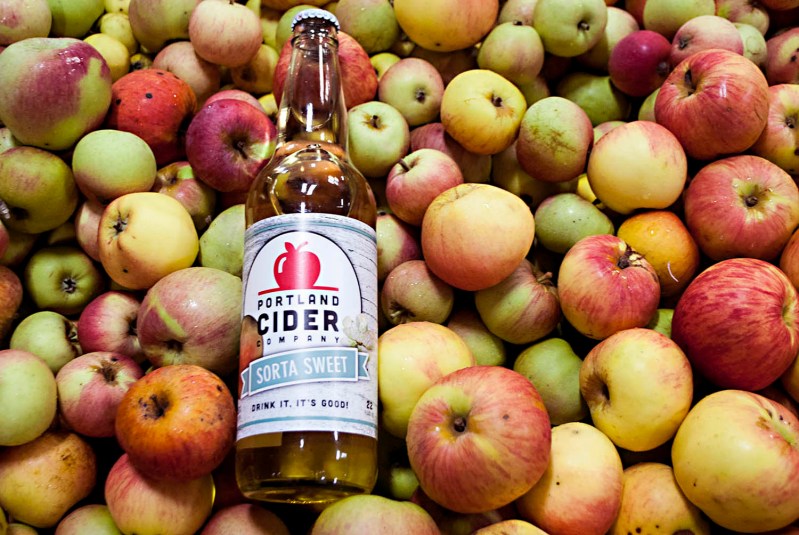Seems like cider can’t catch a break. First, it went up against wine and beer, competing for aisle attention with a fraction of the marketing muscle and media coverage. Then came White Claw and a tsunami of hard seltzer and mixers. And this to say nothing of the lower-alcohol and zero-proof trend, another potential nuisance if you’re trying to sling hard apple juice.
Portland Cider Company has been at it since 2013. That’s not a long time, but in the trend-heavy drinks realm, it’s a healthy stretch. The English-inspired cider house continues to push forward, but not without what seems like more and more effort. Cofounder Jeff Parrish says it’s all about innovation and making the best product you can. The latter, to a certain extent, comes with the territory. Based in the Pacific Northwest, where cider consumption is well above the national average, there’s both access to great local apples and a relatively savvy customer base.

“Our customer base knows what craft is and wants to drink craft,” Parrish says. That doesn’t necessarily equate to barrel-aged heirloom blends bottled in wax-dipped bottles. Portland Cider Company’s number one seller is its Kinda Dry Cider, made in the mold of a traditional British cider — light, refreshing, crushable. But, as he mentioned, you must keep creating to stay afloat. One good cider isn’t enough in an era swimming in fruit beers, hard kombucha, canned cocktails, and five flavors and counting of The Claw.
Enter riffs like a cider sangria and a generously hopped cider. Portland Cider Company also does some seasonal offerings, like a peach berry and a passion fruit. Parrish says he and his staff have weekly meetings on innovation alone (“I have 30 mason jars right now full of tinctures of tea and all kinds of other flavors we’re working with,” he remarked).
“We have to remember how young cider is in this country … It’s like a teenager who doesn’t know who it wants to be. It will evolve and settle in over time.”
Part of the challenge, of course, is market leverage. The companies behind the hard seltzer push are so large that they’re practically in their own scale tier. They can afford to crowd out the little guys because they have the capital, the production volume, and the pre-existing distribution networks already in place. White Claw is owned by Mark Anthony Brands, famous in a previous life for Mike’s Hard Lemonade.
As fickle as the drinks industry is, we’d like to think its palate is always getting better. It’s conceivable that some imbiber trying Angry Orchard for the first time, as relatively soulless as it may be, will gain a liking for cider and look for something more nuanced. It happens in wine but that’s because wine has broken through. Cider, at least outside of the Pacific Northwest, can be something of a foreign object. It’s going to take some collaboration and perhaps the slowing of a few current distracting trends to help that along.

Parrish says his brand continues to see growth, albeit in the single digits. But if it and other quality cider operations can weather yet another storm dealt by the chameleon otherwise known as Big Alcohol, who knows, maybe they may prove resilient enough to stay in for the long haul. “I certainly hope that the more traditional cider out there gains a firmer footing,” he adds. It didn’t happen with craft beer and terroir-driven wine overnight and it certainly will take some time for the cider crowd, too.
“We have to remember how young cider is in this country,” Parrish says. “It’s like a teenager who doesn’t know who it wants to be. It will evolve and settle in over time.”
Will Parrish and Co. hop on the hard seltzer train? Likely, but with some caveats. “We have no choice,” Parrish says. “But we’ll have our own angle.”


